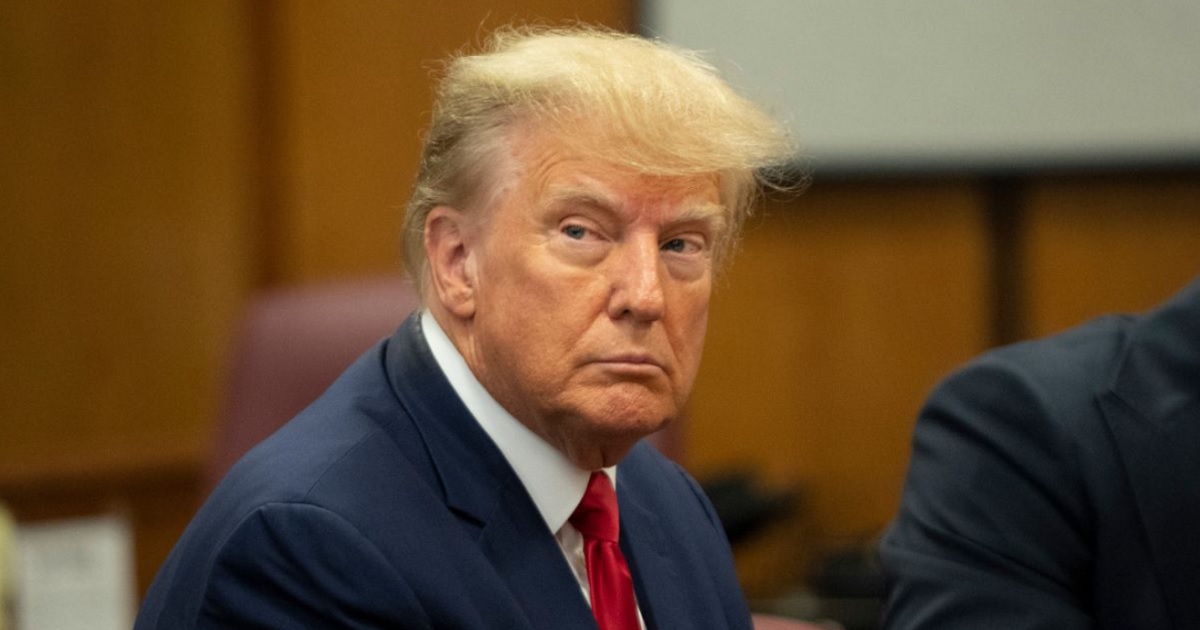Judge halts Trump policy poised to impact immigrants from 4 countries
In a significant court ruling, a federal judge has suspended a Trump administration order that sought to end humanitarian parole for over 500,000 immigrants from Cuba, Haiti, Nicaragua, and Venezuela.
This decision temporarily secures the legal status and work rights for these individuals, originally provided under Biden-era humanitarian programs, thwarting the Trump move, as the Associated Press reports.
The controversy centers around U.S. District Judge Indira Talwani's decision to prevent the termination of legal protections for these immigrants, whose status was set to expire on April 24.
The administration's recent move aimed to revoke the humanitarian parole granted during the Biden administration, which normally allowed a two-year residency with work authorization.
This action by the Trump administration raised the possibility of immediate deportations, as affected individuals would have lost their status within 30 days. The debate intensified during the court proceedings, where Judge Talwani critically evaluated the government’s rationale and legal basis for discontinuing the humanitarian parole.
Reactions pour in
Outside the courtroom, the ruling was met with relief and gratitude from advocates and immigrants alike. They expressed their dependency on the program to evade persecution and secure their livelihoods in the U.S.
This sentiment highlights the critical nature and the immediate impact of the judicial intervention on the lives of many.
The plaintiffs in this case, many of whom arrived in the U.S. with financial sponsors, had applied online and covered their airfare, fulfilling all conditions of the two-year permit.
These conditions are part of broader efforts to regulate the process and ensure responsibilities are met by those who benefit from the program.
Judge Talwani did not mince words during the hearing, stating, "The nub of the problem here is that the secretary, in cutting short the parole period afforded to these individuals, has to have a reasoned decision," which she noted was "based on an incorrect reading of the law." She also remarked on the disruption caused, asserting, "There was a deal and now that deal has been undercut."
Arguments take shape
During the hearing, government lawyer Brian Ward made a case that termination of the program wouldn't close all doors for the immigrants, suggesting other pathways might still be available.
However, he acknowledged that without the protections, the individuals could face difficulties, particularly if needing medical attention or if involved in accidents, making them susceptible to detention.
Support for the affected immigrants came from both ends of the political spectrum. About 200 congressional Democrats, along with Republican representatives from Florida, including Rep. Maria Salazar of Miami, supported legislation aimed at preventing deportations and potentially allowing individuals to become lawful permanent residents.
Guerline Jozef, an advocate for immigrant rights, criticized the efforts to end legal protections, stating, "We hear the narrative of people coming here illegally and the administration wanting to erase illegal immigration. But, we see today that it is not the case. Even those people who have legal status, are paying their taxes, and working are under attack."
Personal narratives emerge
Cesar Baez, a beneficiary of the program from Venezuela, shared his fears concerning the possibility of being deported back to his country, where he believes he would face immediate imprisonment. His testimony underscores the personal stake many have in the outcome of legal challenges to immigration policies.
Zamora, another affected individual, stressed the importance of the work permit, "I was terrified of being left without a work permit," pointing out how rigorous the vetting process was, involving several background checks.
That concern reflects a common fear among those who rely on such documentation to maintain employment and stability in their lives.
The ongoing judicial reviews and legislative efforts will continue to shape the landscape of immigration policy in the U.S., influencing not only the lives of hundreds of thousands of immigrants but also the broader discourse on humanitarian aid and legal protections within the immigration system.





